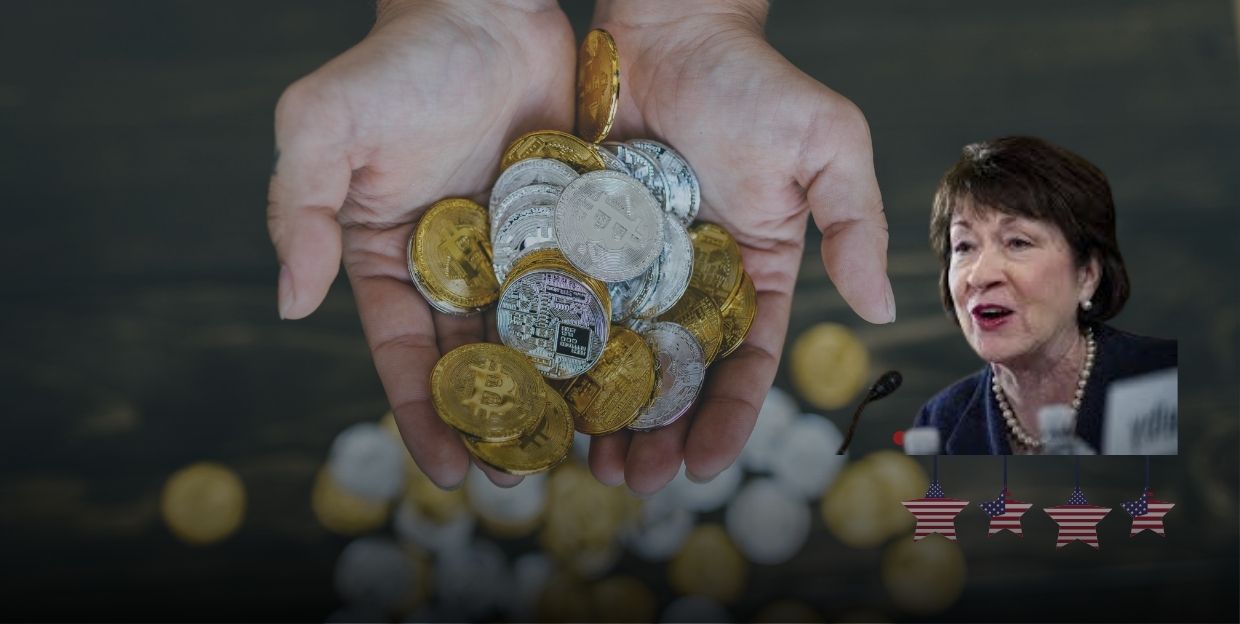
As the cryptocurrency market continues to gain momentum in 2025, U.S. Representative Mike Collins from Georgia has made headlines by disclosing his investments in several prominent cryptocurrencies, including XRP, Solana (SOL), and Bitcoin (BTC). This disclosure comes at a time when the digital asset sector is experiencing significant growth and heightened interest from lawmakers.
Recent Disclosure and Investment Strategy
In a financial disclosure filed on January 1, 2025, Collins revealed that he holds investments in a variety of cryptocurrencies, reflecting a growing trend among lawmakers to engage with digital assets. His portfolio includes not only XRP, SOL, and BTC but also lesser-known tokens like Ski Mask Dog (SKI), which he purchased during a recent price surge. Collins’ investments come as Bitcoin recently crossed the $100,000 mark, reigniting interest in the cryptocurrency space. His strategic timing in disclosing these holdings has raised questions about the potential influence of personal investments on legislative actions regarding crypto regulation.
The Growing Interest in Cryptocurrencies Among Lawmakers
Collins is among a select group of lawmakers who have openly embraced cryptocurrency investments. This trend aligns with the broader political landscape, where pro-crypto sentiment is gaining traction. The recent elections saw a wave of pro-crypto candidates elected to Congress, with 250 members reportedly supportive of digital asset initiatives. Despite this growing interest, only a handful of lawmakers have actively engaged in trading cryptocurrencies. Collins’ disclosure highlights the ongoing discussions about transparency and ethical considerations surrounding crypto trading by public officials. Critics argue that such investments could lead to conflicts of interest, especially if legislators are involved in crafting regulations that affect their personal holdings.
The Impact of Market Sentiment on Cryptocurrency Investments
The current market sentiment surrounding cryptocurrencies is largely optimistic. Bitcoin’s recent rally has been attributed to various factors, including increased institutional investment and favorable regulatory discussions. With President-elect Donald Trump advocating for the U.S. to become the “crypto capital of the planet,” many investors are hopeful for clearer regulatory frameworks that could further boost market confidence. In addition to Bitcoin’s surge, Solana and XRP have also shown resilience. Solana’s innovative technology and growing ecosystem make it an attractive option for investors looking for high-growth potential. Meanwhile, XRP continues to recover from previous legal challenges and is positioned for growth as regulatory clarity improves.
Regulatory Landscape and Future Considerations
As lawmakers like Collins navigate their investments in cryptocurrencies, the regulatory landscape remains a critical area of focus. The introduction of new legislation aimed at establishing clearer guidelines for digital assets is expected in 2025. Collins has co-sponsored initiatives such as the Financial Innovation and Technology for the 21st Century (FIT21) Act, which seeks to create more specific regulatory frameworks for cryptocurrencies. The potential establishment of a national Bitcoin reserve has also been discussed among lawmakers, with proponents arguing that it could align the U.S. strategically with Bitcoin’s growth. However, there are substantial legal questions regarding such initiatives, and many critics caution against the inherent risks associated with Bitcoin’s volatility.
Conclusion
Representative Mike Collins’ disclosure of his cryptocurrency holdings underscores the increasing engagement of lawmakers with digital assets as they seek to navigate this rapidly evolving market. With significant investments in XRP, SOL, and BTC, Collins joins a small but growing group of officials who are embracing cryptocurrencies. As 2025 unfolds, the interplay between personal investments and legislative actions will be closely monitored by both investors and industry observers alike. With ongoing discussions about regulatory clarity and potential new legislation on the horizon, the future of cryptocurrencies in the U.S. looks promising yet complex. Investors are encouraged to stay informed as these developments unfold in what promises to be an exciting year for digital assets.

